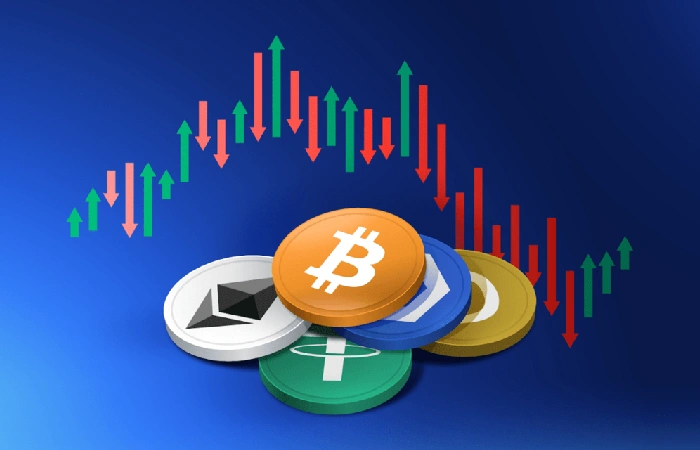Today, blockchain use cases have far surpassed cryptocurrencies, and consequently, the number of blockchain protocols has skyrocketed.
Blockchain protocols are guidelines that allow data to be shared securely and reliably across cryptocurrency networks.
Enhance decentralization, scalability, consistency, and security.
The goal of blockchain protocols is to address the following principles:
Decentralization: Since blockchain is a decentralized network, there is no need for any central authority to validate transactions. Instead, protocols control how data is stored, transmitted, and authenticated over the network.
Scalability: Refers to the increase in the number of transactions. Previously, scalability has been a challenge in blockchain. Today, however, protocols manage the increase in transactions on the network. Protocols also add nodes to the network.
Coherence: Protocols update the entire database at each transaction step so each user knows the network.
Security: The protocols are responsible for protecting the entire network, defining the data structure, and protecting it from malicious users.
Top 12 Blockchain Protocols

However, because so many protocols are available, organizations can struggle to determine which is truly important. Here are the 12 best blockchain protocols to know.
Bitcoin
Bitcoin, a peer-to-peer money system, is the most well-known crypto protocol. Allows people to carry out financial transactions with each other without trusted third parties, such as financial institutions. It will enable transactions that are not reversible and also prevent double-spending.
Additionally, the Bitcoin network is decentralized, meaning it is not controlled by any entity, providing more security and making it more difficult for organizations to manipulate transactions. The network uses a proof-of-work (PoW) consensus mechanism to confirm and record crypto transactions.
Ethereum
The Ethereum protocol is designed around smart contracts, where contracts are automatically executed without needing third parties when certain conditions are met on the network. The Ethereum network designs are scalable and can handle numerous transactions per second, making it perfect for decentralized apps. (dApps) that need to take vast amounts of data.
Quorum
Quorum, focused on businesses, aims to help organizations in the financial industry and has significant support from these financial institutions. It is an open-source project developed by JP Morgan Chase, can be used by anyone. Built on top of Ethereum, it is compatible with smart contracts and Ethereum tools.
Cardano
Cardano is a proof-of-stake (PoS) blockchain platform used to develop secure and sustainable intelligent contracts and decentralized applications. It runs on a protocol called Ouroboros that aims to reduce energy usage in crypto transactions.
Rope
Corda, an enterprise protocol, was developed by the R3 banking consortium. As such, the Corda protocol is ideal for financial services applications. Moreover, an open-source framework, Corda maintains security and transparency through consensus algorithms.
TRON
TRON is a decentralized platform that can be used to develop smart contracts and decentralized applications. Because it primarily focuses on the entertainment industry, content creators can use the platform to publish, store, and make money from their digital content.
Binance Smart Chain
Binance Smart Chain (BSC) enables cheap and fast transactions. Since BSC is scalable, it can handle a large number of transactions in a short time, making it suitable for decentralized applications that must hold large amounts of data.
Additionally, since this protocol uses a proof-of-stake consensus mechanism, it allows the network to use less energy than Bitcoin’s proof-of-work mechanism.
Cosmos
Cosmos is a decentralized network with independent blockchains that allows assets and data to be transferred between unrelated blockchains. It offers a shared security model for all connected chains and enables secure and fast transactions.
Because Cosmos focuses on scalability and interoperability, it is a good choice for decentralized finance (DeFi) projects and exchanges.
Polkadot
This multi-chain network allows unrelated blockchain systems to work together. Developers can use Polkadot to create decentralized applications that will enable these different blockchains to communicate with each other and transfer any data across any blockchain. This means developers can create more interconnected and complex apps.
Hive
The design of this blockchain protocol is similar to that of decentralized social media applications. Hive provides secure and fast transactions. It has a large community of content creators and curators and, as such, stands out for its emphasis on partnership, engagement, and collaboration.
Solana
Solana is a fast and scalable protocol developed for decentralized financial applications. It can process thousands of transactions per second using the Solana proof-of-stake consensus algorithm.
Focused primarily on developer adoption, it offers various tools and resources to help them build on the platform.
Hyperledger
Hyperledger is a blockchain protocol. It is an open source developed by the Linux Foundation. As a permissioned blockchain, only authorized parties can participate in the network. Moreover, the protocol is scalable, flexible, and modular, making it suitable for enterprise applications. Hyperledger targets organizations across sectors and aims to facilitate business transactions and other financial services.
The protocol’s smart contract engine allows companies to develop and deploy intelligent contracts more efficiently. Hyperledger also offers individuals a secure channel to share private data.
In summary
These 12 blockchain protocols represent a range of technologies and use cases, each with strengths and weaknesses. Consequently, users and developers essentially decide which protocols best meet their needs.
As blockchain technology continues to evolve, users and developers must stay informed and updated with the latest developments in the field.





